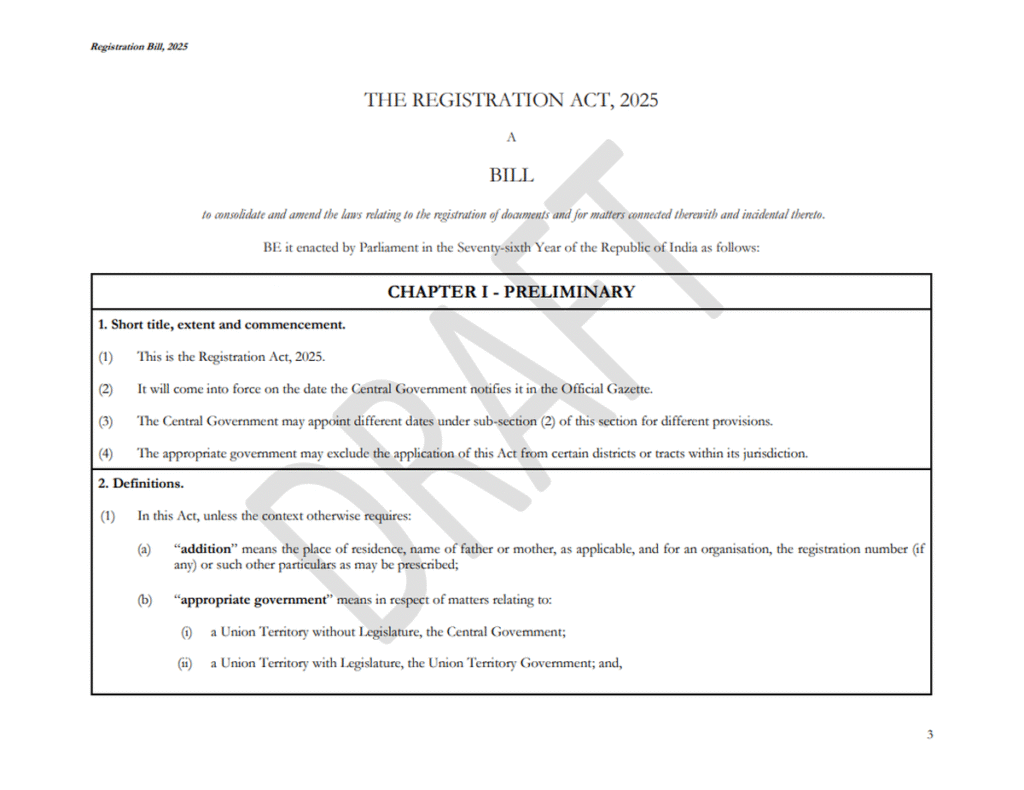No More Office Visits! Government Proposes Complete Online Property Registration Under New Draft Law

Pune records 11,930 property registrations in May 2025, reports Knight Frank India
In a major reform that could revolutionize the property registration process in India, the government has proposed a new law that will allow property transactions to be completed entirely online. The draft Registration Bill, 2025, aims to replace the 117-year-old Registration Act of 1908 with a fully digital, transparent, and citizen-friendly system.
Digital Leap for Property Deals
Under the proposed law by the Ministry of Rural Development, buyers and sellers will no longer need to queue up at government offices or handle physical documents. The entire process—from verifying property documents to receiving the final registration certificate—can be done through digital platforms.

The draft bill includes provisions for electronic submission of documents, Aadhaar-based authentication, digital record maintenance, and the issuance of electronic registration certificates. Alternative identification options will also be available for those unwilling to use Aadhaar.
Uniform Rules Across India
Currently, digital property registration is available in some states, but these efforts remain inconsistent. The new bill seeks to standardize the process across the country by establishing a unified legal framework for all states and union territories. It also proposes integration with other digital databases to improve verification, reduce fraud, and ensure better transparency.
Significantly, the bill also expands the scope of documents that require mandatory registration. This includes agreements to sell, powers of attorney, equitable mortgages, and sale certificates—plugging legal gaps that have often led to disputes and fraud.
Why This Matters Now
The Department of Land Resources emphasized the need for reform, citing rapid technological advancement, evolving citizen expectations, and the demand for improved transparency and efficiency in land transactions. The century-old 1908 law no longer suits the pace and complexity of today’s real estate landscape.
The draft bill is open for public consultation until June 25, giving citizens a chance to voice their opinions on what could be one of the most significant overhauls of property laws in India.
If enacted, this digital-first system is expected to simplify the registration process, cut down on bureaucratic delays, reduce corruption, and empower rural and remote communities by making property registration more accessible than ever before.












